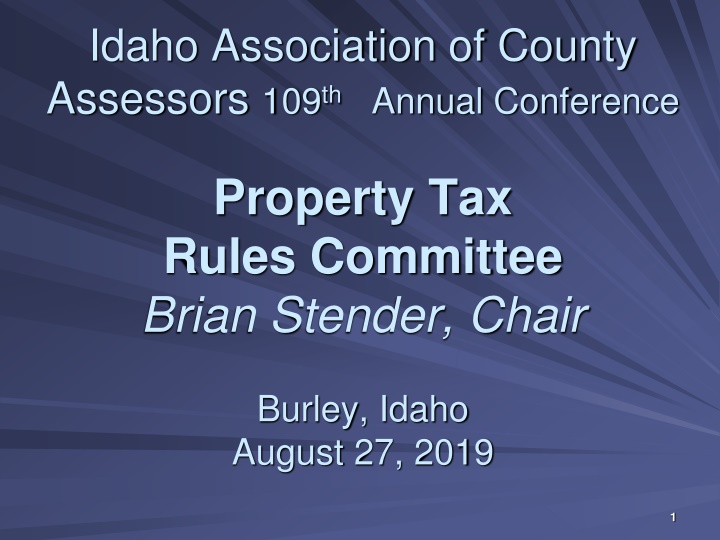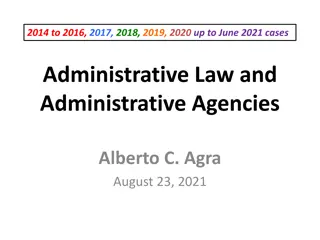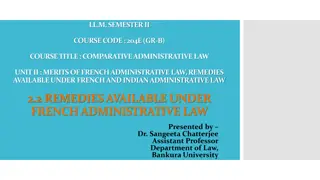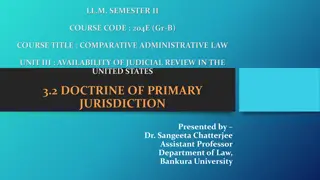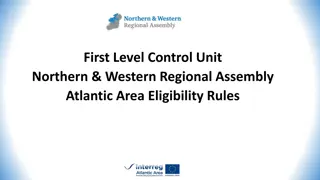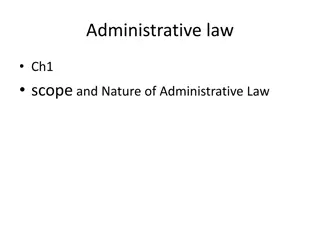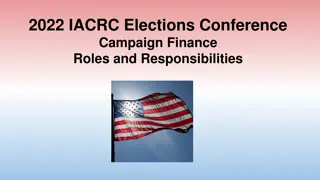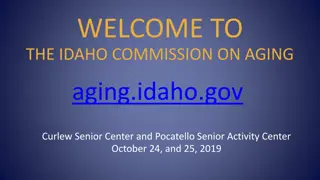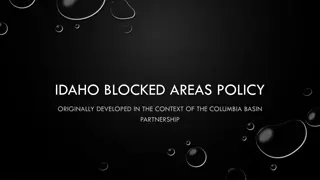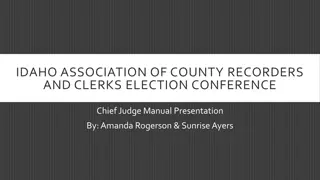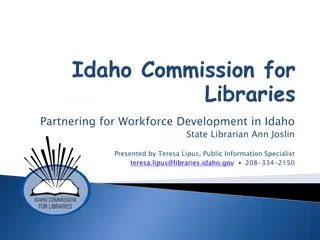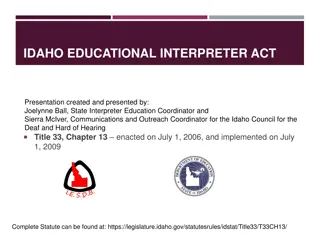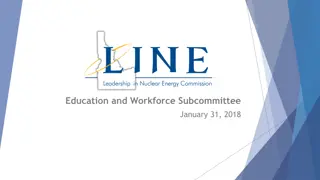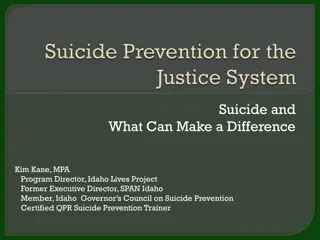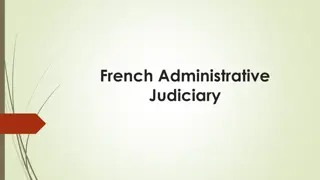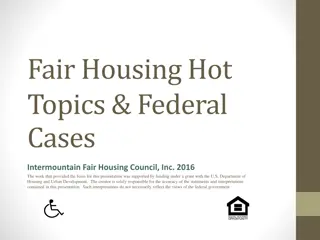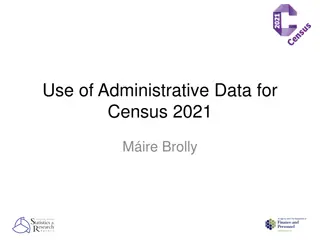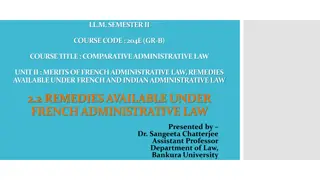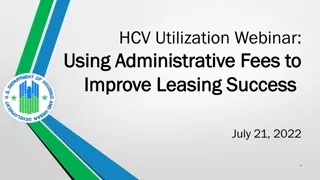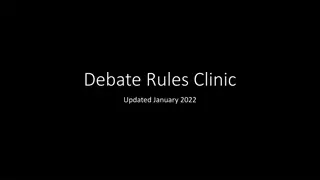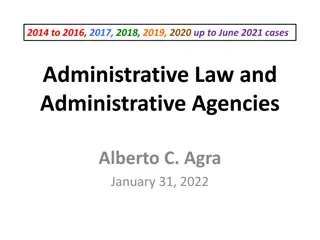Overview of Idaho Administrative Rules
Learn about administrative rules in Idaho, including the process, types of rules, and steps in negotiated rulemaking. Understand the publication and review procedures for rules by the Idaho Administrative Procedures Act (IDAPA).
Download Presentation

Please find below an Image/Link to download the presentation.
The content on the website is provided AS IS for your information and personal use only. It may not be sold, licensed, or shared on other websites without obtaining consent from the author.If you encounter any issues during the download, it is possible that the publisher has removed the file from their server.
You are allowed to download the files provided on this website for personal or commercial use, subject to the condition that they are used lawfully. All files are the property of their respective owners.
The content on the website is provided AS IS for your information and personal use only. It may not be sold, licensed, or shared on other websites without obtaining consent from the author.
E N D
Presentation Transcript
Idaho Association of County Assessors 109thAnnual Conference Property Tax Rules Committee Brian Stender, Chair Burley, Idaho August 27, 2019 1
Property Tax Administrative Rules Activity for 2019 Idaho State Tax Commission Alan S. Dornfest Property Tax Policy Bureau Chief Chair ISTC Property Tax Rules Committee Email: alan.dornfest@tax.idaho.gov Telephone: 208-334-7742 Kathlynn Ireland Property Tax Policy Specialist Email: kathlynn.ireland@tax.idaho.gov Telephone: 208-332-6624
What are administrative rules? Laws made by the executive branch The process is governed by the Idaho Administrative Procedures Act (IDAPA) (Title 67, Chapter 52) IDAPA provides for two official rules publications: Idaho Administrative Bulletin Idaho Administrative Code IDAPA provides for legislative review of all rules: Approval Rejection Modification or Amendment
Types of Rules Proposed rule The agency s written proposal to adopt a new rule, amend or repeal an existing rule May not yet be published in the Administrative Bulletin or, if published, has not yet been adopted by the agency Can not be enforced Temporary rule (Emergency rule) Authorized by the Governor if the rule is required for: Protection of the public health, safety, or welfare; or Compliance with deadlines in amendments to governing law or federal programs; or Conferring a benefit Can be enforced Generally expires at the end of legislative session 4
Types of Rules (continued) Pending rule Has been adopted by the agency but remains subject to legislative review May be changed or rejected by the legislature Does not become final or effective until the conclusion of the regular or special session at which it was considered by the legislature. Final rule also known as a permanent rule Negotiated rulemaking process in which interested parties and the agency seek a consensus on the content of a rule. 5
Steps in Negotiated Rulemaking Rules Committee Discusses a rule in the inception stage to determine if rulemaking is needed If negotiated rulemaking is feasible, the agency sends an Administrative Rules Request Form (ARRF) to the Division of Financial Management (DFM) and the Governor s Office for review Division of Financial Management The committee discusses issues and agrees on draft rules, the Notice of Proposed rulemaking is published in the Admin. Bulletin Notice of Proposed Rulemaking 6
Steps in Negotiated Rulemaking Cont. Once the Notice of Proposed Rulemaking is published in the Admin Bulletin a 21-day public comment period begins. Comment Period The final Rule Draft is presented to the Tax Commissioners in an Open Meeting with a Resolution to adopt a Pending Rule. Tax Commissioners If the final draft is approved, a Notice to Adopt Pending Rule is published in the Bulletin and presented at the next Legislative Session. Legislature 7
2019 2020 Proposed Rules The ISTC property tax rules committee amended and approved 9 existing administrative rules These 9 proposed rules are expected to be published in the administrative bulletin on October 2nd. If approved by the Commission after the comment period closes October 23rd, these rules will become Pending Rules. Pending Rules will become Permanent and effective upon adjournment of the legislature unless both chambers reject the rule(s) 8
Whats New in 2019 Executive Order: The Red Tape Reduction Act Senate Bill 1215 held in the House. All Administrative Rules were to expire on July 1st, 2019 9
Red Tape Reduction Act Through the end of fiscal year 2021, prior to proposing a new rule for publication At least two existing rules to be repealed or significantly simplified Or, a statement stating why existing rules cannot be simplified or eliminated. The Division of Financial Management will produce an annual report to the Governor s office outlining the progress made in eliminating burdensome regulations 10
Omnibus Notification Senate bill 1215 provided that administrative rules set to expire on July 1, 2019, will continue to be effective until July 1, 2020. Passed Senate unanimously but Held at the Desk at the first reading in the House. Governor Little used an executive administrative action to ensure rules remain in effect after July 1, 2019 11
Omnibus Notification (Continued) Agencies will re-publish the rules as temporary rules concurrently in a special edition of the Idaho Administration Bulletin Minus deleted rules Minus examples removed from current rules All rules reauthorized through this process are subject to legislative review during the 2020 session. 10 property tax rules will have examples removed and moved to an alternate source. 4 rules deleted in their entirety Amended proposed rules will continue through the typical negotiated rulemaking process. 12
Rules With Examples To Be Removed 219. Uniform parcel Numbering System 220. Assessment of Internal Revenue Code Section 42 Low Income Housing 613. Property Exempt from taxation Speculative Portion of Value 614. Speculative Portion of Value of Ag Land 619. Facilities for Water or Air Pollution Control 13
Rules With Examples To Be Removed 628. Partial Exemption for Remediated Land 645. Land Actively Devoted to Agriculture Defined 802. Budget Certification - New Construction and Annexation 803. Budget Certification Dollar Certification (L-2 Form) 961. Homesite Assessment and Forestlands Less than 5 Acres. 14
Rules To Be Deleted 945. Subsequent Assessment of Property Concealed 968. Certain Christmas Trees and Annual Forest Crops Exempt from Yield Tax 980. Valuation of Mines for Taxation 990. Certification of the Tax Charge on Farm Machinery, tools, and Equipment for Replacement Fund Distribution Please provide comments to the State Tax Commission before October 2nd. 15
Proposed Rules 2020 006. Incorporation by Reference Deletes reference to the Official Railway Equipment Register 411. Private Car Reporting by Railroad Company Also deletes reference to the Official Railway Equipment Register 130. Description of Primary Categories Used to Test for Equalization Add agricultural categories to the list of categories considered for equalization compliance testing 16
Proposed Rules 2020 131. Use of Ratio Study or Other Method to Test for Equalization in Counties Provide for standards for agricultural assessments and the processes to study compliance 225. Documentation for Newly Organized or Altered Taxing Districts Amended to comply with HB 193a 613. Speculative Portion of Value of Ag Land Replaced by Proposed Rule 617 17
Proposed Rules 2020 614. Speculative Portion of Value of Ag Land Examples Replaced by Proposed Rule 617 617. Ag Land Valuations Definitions and Guidelines Provides definitions to assist assessors to correctly calculate the assessed value of ag land. 317. Occupancy Tax on Newly Constructed Improvements on Real Property Occupancy tax for the tax year during which the formation or annexation of an Urban Renewal Revenue Allocation Area took effect is not distributed to the urban renewal agency. 18
Proposed Rules 2020 804. Tax levy Certification Urban Renewal Districts Companion rule to Rule 317 concerning the base and increment allocation for newly constructed improvements on the occupancy roll and part year assessments in the year of formation of an RAA. 717. Procedures After Claim Approval HB62 to permit certification of late reimbursement to counties for claimants seeking PTR benefits on the occupancy roll 19
Future Projects Rule 603. Property Exempt from Taxation Religious Corporations or Societies 01. Valuing the Taxable Part of Qualifying Property. Under Section 63-602B(2), Idaho Code a county shall determine the value of the part of the property used or leased for business or commercial purposes examining the amount of time, during the calendar year, the property is used for business or commercial purposes, the percentage of the property used for business or commercial purposes 20
